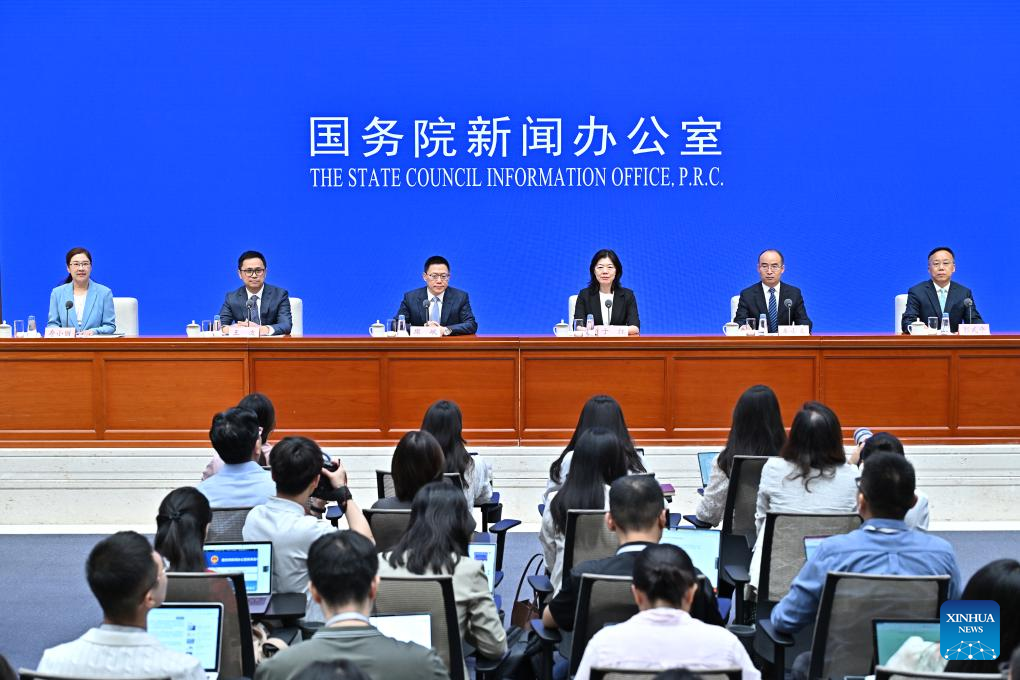China's loan interest subsidy policies expected to spur consumption, officials say
Source: Xinhua
Editor: huaxia
2025-08-13 18:36:45

The State Council Information Office (SCIO) holds a policy briefing on China's interest subsidy policies for personal consumption loans and lending for service sector business entities, in Beijing, capital of China, Aug. 13, 2025. (Xinhua/Li Xin)
BEIJING, Aug. 13 (Xinhua) -- Loan interest subsidy plans for individual consumption and services businesses are expected to bolster consumption, which is a key engine for the Chinese economy, an official of the Ministry of Commerce said on Wednesday.
In its latest move to spur consumption, China on Tuesday unveiled plans to offer interest subsidies for qualifying personal consumption loans and eligible business loans in the services sector.
"The policies take a dual approach from both demand and supply sides, coordinating efforts to strengthen consumption capacity and expand effective supply," commerce ministry official Wang Bo told a press conference on Wednesday.
Compared with previous direct fiscal subsidies, the two loan interest subsidy policies are designed to leverage more financial resources to flow into the real consumer sector, said Vice Minister of Finance Liao Min.
With a loan interest subsidy ratio of 1 percent, every 1 yuan (about 14 U.S. cents) of interest subsidy funds is likely to drive 100 yuan of loan funds to be used for residents' consumption or the supply of services in the consumer sector, according to Liao.
"The policies will have a positive impact on boosting consumption, particularly in expanding services consumption," Wang noted.
Major Chinese banks on Wednesday announced that they will steadily promote the implementation of the policies.
Official data shows that retail sales of consumer goods increased 5 percent year on year in the first half of 2025, and retail sales of services rose 5.3 percent, providing strong support for the sustained growth of the Chinese economy.
Looking ahead, the vitality and potential of China's super-large market will be stimulated further as various policies to expand consumption continue to take effect, Wang said. ■



